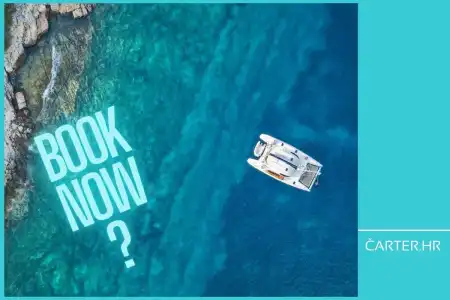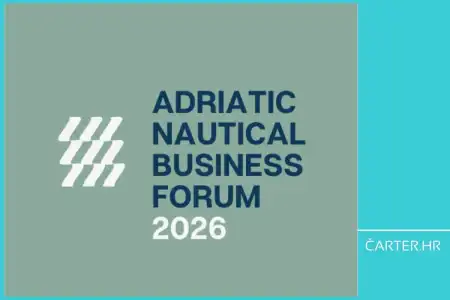
Keyword research. It sounds so very... technical, doesn't it? Yet, we'll get a bit more into this "enigmatic process". We wish to illuminate all how you can make your yacht charter’s website more visible than ever before.
The Internet is much like an ocean. Vast and without an end, filled with all kinds of information. And this information is mostly found on websites.
To use nautical language, we can also say this ocean is a place where these websites are vessels of all kinds, shapes and sizes. And they are all trying to catch attention.
But in this vastness, how does one ensure that their vessel (read: website) doesn't get lost? The compass guiding this journey?
Keyword research.
How does this compass, this keyword research, work? And how does it enhance a website's visibility?
We are sure you made a lovely and user-friendly website after you started a charter company. But is it "visible"?
Every time an individual punches in a search engine query, they're essentially looking for content that matches their intent. Keywords are those vital connectors, bridging the searcher's query to the content on your website.
When your website is optimised with the right keywords, it stands a better chance of being in the line of sight of the searcher.
Sounds too complicated? It's not. But still, it demands some effort.

How does keyword research help improve your website's visibility?
But it's not just about understanding what that one individual, or your general audience, is looking for, but how they're looking for it.
People might use different terminologies, phrases, or jargon to search for the same thing. Keyword research helps tap into these myriad ways people search, allowing you to tailor your content to the language of your audience.
Let's imagine you're an avid blogger. You have a lot of topics to write about. How do you prioritise?
Enter keyword research.
By identifying high-demand keywords in your niche, you get insights into topics your audience is looking for. It's also quite a smart strategy.
This means you're not shooting in the dark but creating content that already has a keen audience waiting.
While paid promotions can drive traffic to your website, there's a unique charm and credibility in organic traffic. This traffic is the one that comes to your website naturally by searching for information, as opposed to paid ads or such.
Keyword research aids in improving these organic search rankings. Websites that appear on the first page of search results receive a great big share of clicks.
By targeting the right keywords, you can steadily climb the ranks and position yourself on this coveted page. (We're talking about the "number one" page, usually on Google.)
It's essential to know that your competition is always just a click away on the Internet.
By understanding keyword research, you can identify not just what keywords are driving traffic to your competitors but also find gaps in their strategies.
These gaps can become your opportunity to carve out a specific niche for your offer and services that you haven't had before. They can also help enhance your website's visibility.
So, you'll stay ahead (or at par) with competitors.

Things to keep in mind while choosing the right keywords
Selecting the perfect keyword is turning out to be an art.
But it's an art with a touch of "science" as well.
It's not about simply plucking words out of thin air; it's about choosing words that resonate with your audience. And search engines alike.
And how to manage that? Here are some tips:
Relevance: Before anything else, ask, "Is this keyword relevant to my content?" If the answer's a good old "No!", you might want to reconsider.
Search volume: While it might be tempting to target keywords that a lot of people are searching for, remember that high volume can also mean fierce competition. Balance is the key.
User intent: Think about the user's motive behind typing those keywords. Are they looking for information, or are they ready to make a booking and payment? This is the core of understanding and capturing your audience.
Long-tail keywords: These are more specific, often longer phrases that people are likely to use when they're close to the point of booking. An example? Instead of "yacht charter", people will serch "Difference between crewed and bareboat yacht charter" or "How to choose the right yacht for charter".

Research the competition to see what your blind spots are
Keep your friends close and your en... erm – competition(!) closer.
Researching competitors isn't about copying their strategies. Do not do that!
It's about understanding where they're shining and, importantly, where they're lacking.
There are opportunities to be had, and here are some of them:
Keyword gap analysis: Using various tools, you can unearth keywords that your competitors may be ranking for but aren't. This gives you a window of opportunity.
Content quality: Sometimes, the issue is not the keyword but the content around it. How in-depth are your competitors? Go and provide a more comprehensive, nuanced take on the same topic.
Backlink analysis: Knowing who links to your competition (and other way around) can give insights into your website's potential partnerships. And who or what to avoid, of course.

Track your website performance with keyword research
Monitoring and tweaking. That is what the digital marketing is sometimes all about.
Your job isn't done once you've implemented your keywords.
Keep an eye on your selected keywords' performance. Are they driving traffic? Are they improving your website's ranking?
A keyword is just a starting point. Look at metrics like bounce rate, time spent on the page, and click-through rates. This tells you whether your content is resonating with the audience or needs some on-page optimisation.
We did compare the Internet to an ocean, vast and unending. But one more thing you must be aware of. The Internet, like the ocean – is ever-changing, fluid and in motion.
Meaning what's trending today might be passé tomorrow.
What worked yesterday to reach your customers, might not work tomorrow. So, keep tweaking your keywords, analyse performance, and be ready to turn in some other direction when necessary.
Your task is to do regular keyword research to stay updated with the constant shifts in users' intent and search patterns.
By adapting your website's content to the evolving trends, you ensure that your website remains relevant, fresh, and, most importantly - visible.
And by doing so, you are also improving your charter company.
So, all in all - keyword research isn't a one-off task. It's an ongoing commitment.
It's not just about driving traffic but about driving relevant traffic. When a searcher is looking for a solution, a piece of information, or a service, your website should stand out and say: "Here's what you're looking for!"
Categories of trends
- News
- Sale
- Marketing
- SEO
- Web design
- Social media
- Technology
- Regulations
- Management
- Education
- Finances
- User experience
Newsletter
Sign up for the newsletter and receive the latest trends and tips straight to your inbox



